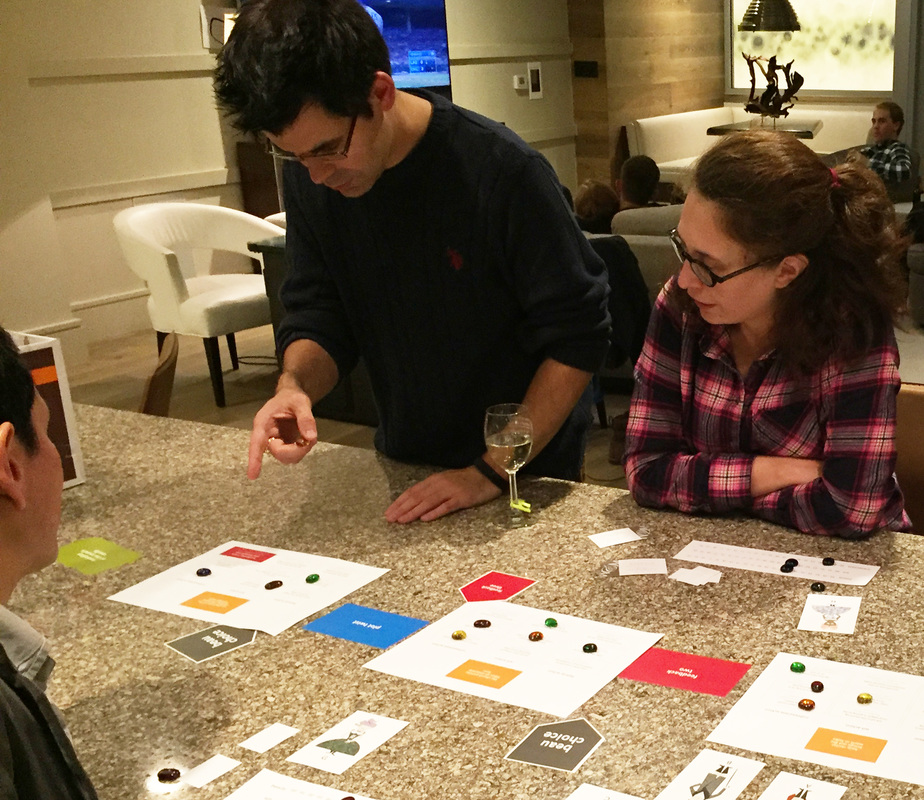|
We sat down with a group of W&M family members to playtest a “paper” version of “Austen Translation” last week. Paper play testing of a video game may sound weird, but it's a great way to try out game mechanics, make gameplay adjustments in real time, and to get immediate player feedback before we sink a lot of time into developmental dead ends. And boy, did we learn a lot in a single evening! A little wine, a few hardcopy printouts and a slapped-together spreadsheet to crunch the game calculations on the fly and we were off to the races — or, in the case of one of the scenarios we played out, off to the polo matches! Here’s four of the many things we learned from that session: (1) TMI is Deadly We were experimenting with ways to give players information about how they were doing as the rounds progressed so they could make game decisions based on feedback. Some of the initial options turned out to be game-breakingly overpowered. One of the players got lucky and basically ended up with a complete road-map to victory. The types and the frequency of information delivery seemed to provide players with a nice arc, so the overall strategy seems viable. But we’re looking at the volume of information that the players get, aiming for delivering less guidance so we don’t accidentally give away the farm. There was also some discussion of how the amount of information in a particular round could be adjusted up or down to modulate difficulty level. (2) “Austen Translation” is a Multi-player Game While our first game, “A Matter of Murder,” is a distinctly single-player experience, our play testers responded enthusiastically to the player-on-player competition that emerged in the AT paper play through. The addition of “scandals” that players could use to handicap a rival, or to make a suitor less attractive, seemed to make the multiplayer experience come alive. And the whole idea of social intrigue and infighting inherent in the game’s theme just dovetails so well with a multiplayer experience. So we’re going to be looking at ways to expand and enrich the multiplayer AT experience right out of the box. (3) Tis Better to Receive Some of the information options available in the paper play through turned out not to be information at all. They were really opportunities to act on information or to create information, like being given the option to spread a rumor about a rival. Some players felt like too many of these opportunities robbed them of the chance to get data they could use. These opportunities also felt very different from the events that gave players information. There’s probably room for this kind of manipulation at some point in the game, but we’re looking at ways to make it optional, or perhaps to create a special phase or moment in the game narrative when players can choose to take this kind of action. (4) Marc Should Never Be in Charge of the Excel Spreadsheet Putting the art school grad in charge of managing the game outputs had predictable disastrous results in a couple of cases. We’ve all learned a lesson. Hopefully it will never happen again. So with some concrete gameplay experience in the bank, we’re back to structuring the rounds and developing content. Our next steps will probably be a crude but functional electronic model of gameplay. Stay tuned.
0 Comments
|
AUTHORWorthing and Moncrieff, LLC is an independent developer of video game stories founded in 2015. ARCHIVES
December 2022
|

 RSS Feed
RSS Feed
